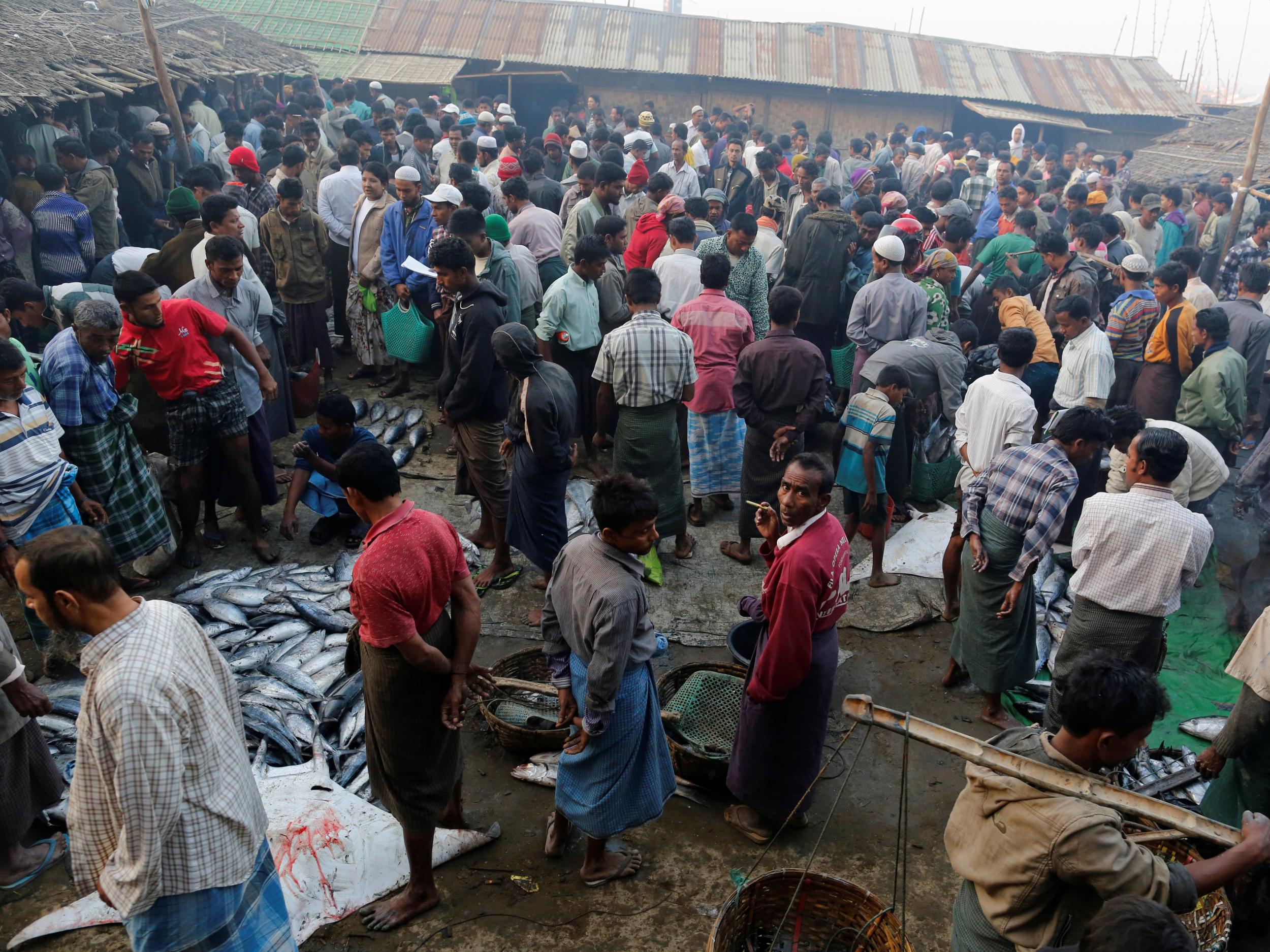Mob kills Rohingya Muslim with bricks in street attack as violence against group intensifies in Burma
Police flee scene in Sittwe as Rakhine Buddhists beat 55-year-old Maung Nu to death

Your support helps us to tell the story
From reproductive rights to climate change to Big Tech, The Independent is on the ground when the story is developing. Whether it's investigating the financials of Elon Musk's pro-Trump PAC or producing our latest documentary, 'The A Word', which shines a light on the American women fighting for reproductive rights, we know how important it is to parse out the facts from the messaging.
At such a critical moment in US history, we need reporters on the ground. Your donation allows us to keep sending journalists to speak to both sides of the story.
The Independent is trusted by Americans across the entire political spectrum. And unlike many other quality news outlets, we choose not to lock Americans out of our reporting and analysis with paywalls. We believe quality journalism should be available to everyone, paid for by those who can afford it.
Your support makes all the difference.A policeman in Burma fled the scene of a deadly mob attack on Rohingya Muslims that has put the troubled western state of Rakhine on edge, two police officials said on Wednesday.
A group of Rakhine Buddhists threw bricks at Rohingya men in the state capital of Sittwe on Tuesday, killing one - identified as Maung Nu, also known as Monir Ahmad, 55 - the office of State Counsellor Aung San Suu Kyi said in a statement.
Two police officers told Reuters an unarmed junior policeman was with the Muslim men at the time of the attack but was unable to protect them from the mob.
“We questioned the young policeman. He said he tried to stop them but he wasn't able to and ran away back to the police station,” said Colonel Myo Thu Soe, spokesman for the home affairs ministry in the capital, Naypyitaw.
No one had been arrested for the attack, but an investigation was going on, he said.
Rakhine State has seen the most serious religious violence in predominantly Buddhist Burma since the military began to end its decades of strict rule, with hundreds of Rohingya Muslims killed and more than 140,000 people displaced there in communal unrest in 2012.
Suu Kyi, who came to power last year as part of the transition from military rule, has emphasised the importance of the rule of law in solving conflict between Buddhists and minority Muslims.
Tension has been running high in the state since an army crackdown in response to Rohingya insurgent attacks in October, but Sittwe has not seen a repeat of the communal clashes of 2012.
On Tuesday, seven Muslim men had travelled into Sittwe from a camp on its outskirts housing people displaced in 2012. They got into an argument with a Buddhist ethnic Rakhine man over the purchase of a boat, attracting the attention of residents who began to attack them.
“The people didn't attack the police because he's the same race,” said Lieutenant Colonel Win Naung of Sittwe district police.
Burma does not recognise the more than 1 million Rohingya Muslims in Rakhine as citizens. Many in Burma consider the them illegal immigrants from Bangladesh.
Myo Thu Soe said the policeman on the scene was unarmed and inexperienced and unable to protect the Rohingya men.
Despite the fact they had a police escort, Myo Thu Soe said the Muslim men were not authorised to travel to the area.
Since the 2012 violence the city's Muslims have been confined to camps or a single city ward, unable to travel freely without a police escort.
Reuters
Join our commenting forum
Join thought-provoking conversations, follow other Independent readers and see their replies
Comments